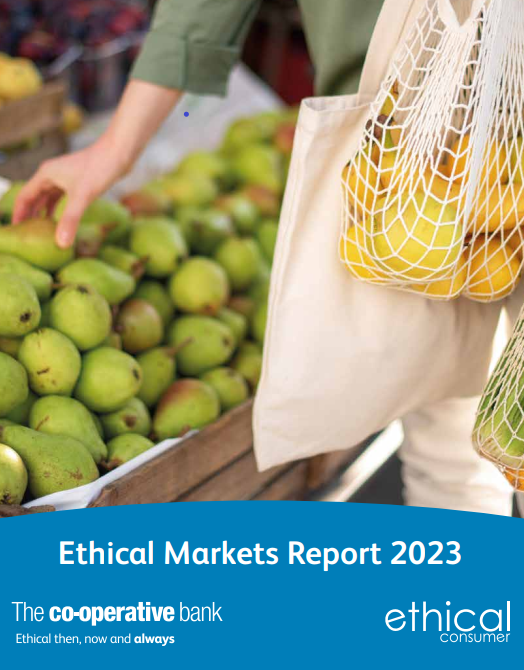Fluctuations in challenging financial times
All this should be seen in the context of a year when most retail business, ethical or otherwise, saw sales volumes decline by 3%. Many ethical businesses are simply struggling, like everyone else, in the most turbulent economic times we have seen since this research began.
Total ethical market value remains significant at £141 billion.
And our opinion survey, which in conducted in tandem with our market research, shows no decline of interest in making ethical choices.
The money in ethical banking and investment grew by only 1.5% in 2022. This was the smallest rise since 2017. Again this should be seen in the context of a year when even mainstream investments grow by only 1% and retail deposits declined everywhere as people faced difficult economic circumstances.
Ethical categories in our market report
We track sales data across a wide range of consumer sectors, including:
- Ethical food and drink
- Green home
- Eco-travel and transport
- Ethical personal products
- Community
- Boycotts
- Ethical money
Overall value of ethical consumption in the UK
Figures from Ethical Markets Report 2023
| |
2020
£m
|
2021
£m
|
2022
£m
|
% growth
2021-22
|
| Ethical food & drink |
4,223 |
11,232 |
12,080 |
7.6% |
| Green home |
4,943 |
9,619 |
12,218 |
27.0% |
| Eco-travel & transport |
1,641 |
7,546 |
12,381 |
64.1% |
| Ethical personal products |
823 |
1,783 |
2,147 |
20.4% |
| Community |
11,130 |
11,845 |
11,966 |
1.0% |
| Total Basket |
22,760 |
42,025 |
50,792 |
20.9% |
| Boycotts |
2,485 |
3,341 |
2,860 |
-14.4% |
| Total Basket and Boycotts |
25,245 |
45,366 |
53,652 |
18.3% |
| Ethical money |
21,947 |
86,219 |
87,473 |
1.5% |
| Total |
47,192 |
131,586 |
141,125 |
7% |
The overall picture
Overall the report reminds us that, although there continues to be a long-term trend towards ethical market growth in the UK, ethical businesses everywhere are not immune to the turbulence we see everywhere.
Britons are poorer and spending more on energy to stay warm. Those that can, are taking positive steps to re-adjust to a world where the climate is changing, by buying electric cars and installing solar panels.
Those that can't, are buying more second-hand items which, of itself, is also helping to reduce emissions.
As previous markets reports have shown, when the government chooses to offer subsidies for positive ethical choices, they can scale up rapidly across all sections of society.
The 2023 Ethical Markets Report was sponsored by the Co-operative Bank. The research was conducted during 2023.
